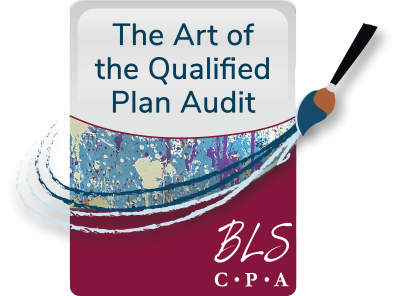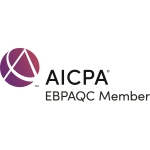Year: 2019
Are Tips a Trap? – (Tips and Traps of Compensation – Part V)
November 25, 2019
Posted by Tyler Starr, CPA The most common error found during the audit of an employee benefit plan is the incorrect definition of compensation being used for contribution purposes. Whether the error is related to payroll coding issues or not fully understanding the plan provisions, plan compensation can be one of the biggest traps for … Continued
2020 Plan Limits – IRS Announces Increases on Benefits and Contributions Dollar Limitations
November 15, 2019
Posted by Saaib T. Uppal, CPA, QKA The IRS has announced cost-of-living adjustments that should be noted for retirement planning purposes. Below is a chart that outlines employee benefit plan limits for 2020: PLAN LIMITS RETIREMENT & SOCIAL SECURITY 2020 Limit 2019 Limit 2018 Limit Section 401(k), 403(b), 457(b) elective deferrals $19,500 $19,000 $18,500 401(k) … Continued
Tips and Traps of Compensation – Part IV
October 29, 2019
Posted by Maria T. Hurd, CPA, RPA Inquiring minds want to know – Are the Bonuses In or Out? How Can I Withhold from a Gift Card? It’s Not Cash! … and more … The Problem The use of an incorrect definition of compensation for contribution purposes continues to be listed as the most common … Continued
Tips and Traps of Compensation – Part III
October 16, 2019
Posted by Maria T. Hurd, CPA, RPA Tips and Traps of Compensation: Part III – Double Jeopardy: No Match on Catch-Ups and No True-Up In our previous two blogs, The Trouble with True-Ups or Lack of True-Ups and What’s the Catch with Administering Catch-Up Contributions, we went over the basic rules and potential pitfalls of … Continued
Tips and Traps of Compensation – Part II
October 03, 2019
Posted by Maria T. Hurd, CPA, RPA Tips and Traps of Compensation: Part II – What’s the Catch with Administering Catch-Up Contributions? In the first part of our Tips and Traps of Compensation Series, we talked about The Trouble with True-Ups or Lack of True-Ups. Part II talks about administering catch-up contributions. Definition of Catch-Up … Continued
EBPAQC: Does your Auditor Belong?
August 28, 2019
Posted by Maria T. Hurd, CPA, RPA Does your 401(k) or 403(b) plan auditor belong to the AICPA’s Employee Benefit Plan Audit Quality Center (EBPAQC)? To demonstrate their commitment to quality in the performance of ERISA audits, 2,600 CPA firms, about a third of the firms that perform EBP audits, have become members of the … Continued
How Can Plan Sponsors Evaluate Prospective Auditors?
August 20, 2019
Posted by Maria T. Hurd, CPA, RPA The AICPA Employee Benefit Plan Digital Badges: How can plan sponsors evaluate prospective auditors who are equally credentialed with digital badges? Is your auditor a Jack of all trades, but a master of none? As the results of the DOL studies on audit quality shift the industry focus … Continued
How Can Auditors NOT be Responsible for the Financial Statements?
August 08, 2019
Posted by Maria T. Hurd, CPA, RPA What Auditors Don’t Do In our previous blog, Testing the work of a specialist in a retirement plan audit: how much expertise does the financial statement auditor need?, I explained that auditors cannot be expected to perform or completely re-perform the duties of other professionals, like the actuary, … Continued
How much expertise does my auditor need?
July 23, 2019
Posted by Maria T. Hurd, CPA, RPA Testing the work of a specialist in a retirement plan audit: How much expertise does the financial statement auditor need? Service providers to the employee benefit plan (EBP) industry are often highly intelligent people that talk in “code”: Internal Revenue Code and ERISA Regulation sections. The legislation … Continued
Tips and Traps of Compensation: Part I
June 25, 2019
Posted by Maria T. Hurd, CPA, RPA UPDATED 7/11/19 Tips and Traps of Compensation: Part I – The Trouble with True-Ups or Lack of True-Ups When 401(k) and 403(b) plans provide that the match contribution is calculated annually, but administratively, the deposit is done on a payroll by payroll basis, it is important for the … Continued









